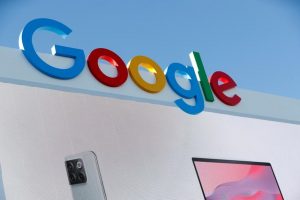The consensus around programmatic advertising is that it has been seen as an enigma to even the most seasoned marketers. Why is this? As the newest form of buying and selling digital ads, there are still a lot of factors that influence the adoption of digital strategies. Programmatic advertising has shaken the digital landscape in just a short period, and for good reason. According to Forbes, “almost half of agencies expect to use programmatic for 60% of their budgets.” With any nuance, there is an adoption process, followed by a bit of an apprehension. With a little education and an easy-to-use programmatic platform, any marketer can successfully implement and execute programmatic advertising.
“Programmatic” ad buying can be defined as a means in which digital advertisements can be purchased, versus the traditional and timely processes of the past. Programmatic ads are bought and sold through a live auction, on a per-impression basis. Essentially, programmatic is a highly efficient way to buy highly targeted advertisements with an automated machine.
Programmatic brings the ease of use to those looking for a solution that connects marketers with 3rd-party data and real-time bidding across display, social, mobile and video. Programmatic allows marketers to leverage vast amounts of data to deliver relevant ads to their customer based on online behavior. This form of digital media buying brings three things to the table: efficiency, relevancy, and scalability.
- Efficiency: Programmatic media’s success is in its effectiveness by allowing marketers to easily buy media across hundreds of publishers with just a few clicks. Display media buying is benefiting from Trading Desks, SSPs (sell side platforms), DSPs (demand side platforms) and Ad Exchanges. Programmatic media buying allows advertisers to bid at the impression level to ensure they are targeting only impressions that have the best chance of generating conversions.
- Relevancy: Programmatic media buys often takes relevancy to the next level by allowing marketers the ability to utilize data and advanced algorithms to focus on a particular target audience. With real-time bidding and programmatic, advertisers can choose specific parameters, such as audience characteristics, behaviors, type of page content, and bid on impressions that fall within their defined target.
- Scalability: The exponential growth of inventory on the Internet coupled with the rise of programmatic automation in the targeting and delivery of digital ads has opened the doors to scalability. As programmatic buying continues to grow at an astonishing rate marketers are finding ways to integrate programmatic into their digital media strategies. Just as marketers are leveraging programmatic to drive more efficient media buying and higher conversions, publishers are using programmatic to scale their ad revenues by ensuring that they are getting the highest possible price for each and every impression.
So, “how many media buyers does it take to screw in a programmatic light bulb?” Programmatic empowers one marketer to execute seamlessly programmatic end-to-end by themselves using easy to use platforms.
With programmatic being new to the marketplace, it opens valuable opportunity for those who educate themselves on the adoption and implementation process. Programmatic is the future of ad buying, and those who take it upon themselves can find incredible opportunity. Test the waters with one campaign to determine if it is a fit for your brand. Once you have more faith in programmatic, by seeing incredible results, begin to integrate programmatic strategies into other campaigns.
Programmatic has increased the flexibility to test, learn, and adapt. This method of media buying has offered a new tactic within a digital marketing strategy. This approach requires a different mindset and skill-set. It is important for marketers to understand that programmatic is merely another tool in the marketing toolkit, used as part of a completely integrated communications strategy. It demands more than a single line on the marketing plan these days – today contributing to brand engagement, consumer development, audience insights, customer targeting, nurturing and finding new customers through lookalike modeling. However, it’s important to remember that effective branding lies in connecting the consumer with the right message at the right time.
The timing is ripe for brands curious about programmatic media to test the waters. Taking advantage of the efficiencies afforded by programmatic could spell big savings and new audiences for your brand. Embrace programmatic or be prepared to struggle against your competitors who are using programmatic. “The list of giant brands announcing major programmatic initiatives is growing long, with Mondelez, Procter & Gamble and American Express joining “old-timers” like Kellogg’s and Netflix,” shares AdExchanger. Programmatic offers ease of use through its simple-to-use platforms and provides marketers the tools to make a large impact using a single interface that allows them to run multiple programmatic accounts in a scalable manner.
Digital & Social Articles on Business 2 Community(33)
Report Post



